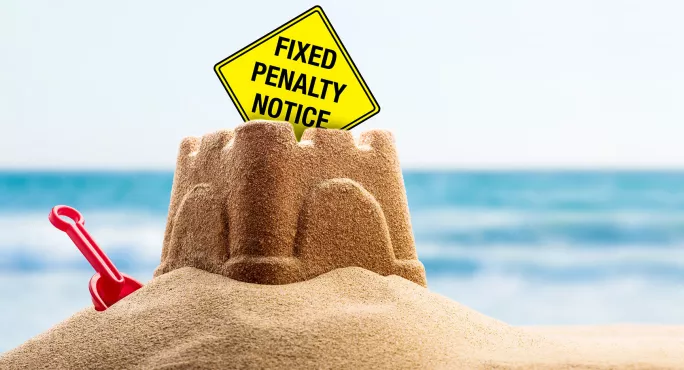The number of fines issued to parents for unauthorised pupil absence has almost doubled in the space of a year, and to levels higher than before the Covid-19 pandemic, Department for Education data shows.
There were 398,800 penalty notices issued in the 2022-23 academic year - with the vast majority given to parents for taking pupils out of school for term-time holidays.
The number of fines was more than 80 per cent higher than the previous academic year’s figure of 218,235 and also considerably more than the last pre-pandemic figure of 333,400 in 2018-19.
The majority of penalty notices - 356,200 (89.3 per cent) - were issued for unauthorised family holidays, the DfE said.
Another 1,000 (0.2 per cent) were issued to parents for pupils arriving late to school, while the remainder were issued for other reasons, according to the latest data published today.
The use of penalty notices varied greatly by local authority, with three local authorities issuing no penalty notices while four local authorities issued more than 10,000 penalty notices each.
The data shows that 28 out of 152 local authorities (18 per cent) accounted for more than 50 per cent of all penalty notices.
School attendance was heavily disrupted in 2020-21 during the pandemic, and the penalty notice measures were halted for two months when schools were not open to all pupils. No data was collected for 2019-20.
National framework for parent fines
Penalty notices are issued to parents for failing to ensure that their child attends school.
The fine is £60 if paid within 21 days rising to £120 if paid after 21 days. If the penalty is not paid after 28 days, the local authority must prosecute for the original offence or withdraw the notice.
The Commons Education Select Committee report on persistent absence earlier this year said that the DfE should deliver a national framework for the use of fines and prosecution.
It said the government “should instruct schools and local authorities to explore methods of support for pupils and families before the use of fines or prosecution, ensuring legal intervention is a last resort only”.
The committee also said that issuing fines does not address barriers that low-income families face in ensuring pupils are in school and can be counterproductive by adding to difficult financial circumstances.
School-parent relationship
Another report into attendance, also published in September this year, warned that the relationship between schools and parents was being strained by school-level attendance systems that feel “increasingly draconian to families”
The Public First report also revealed that the idea of taking pupils on term-time holidays is now entirely socially acceptable across all socioeconomic groups.
The research found that there has been a radical shift in the way term-time holidays are viewed, and the scale at which they are being taken.




